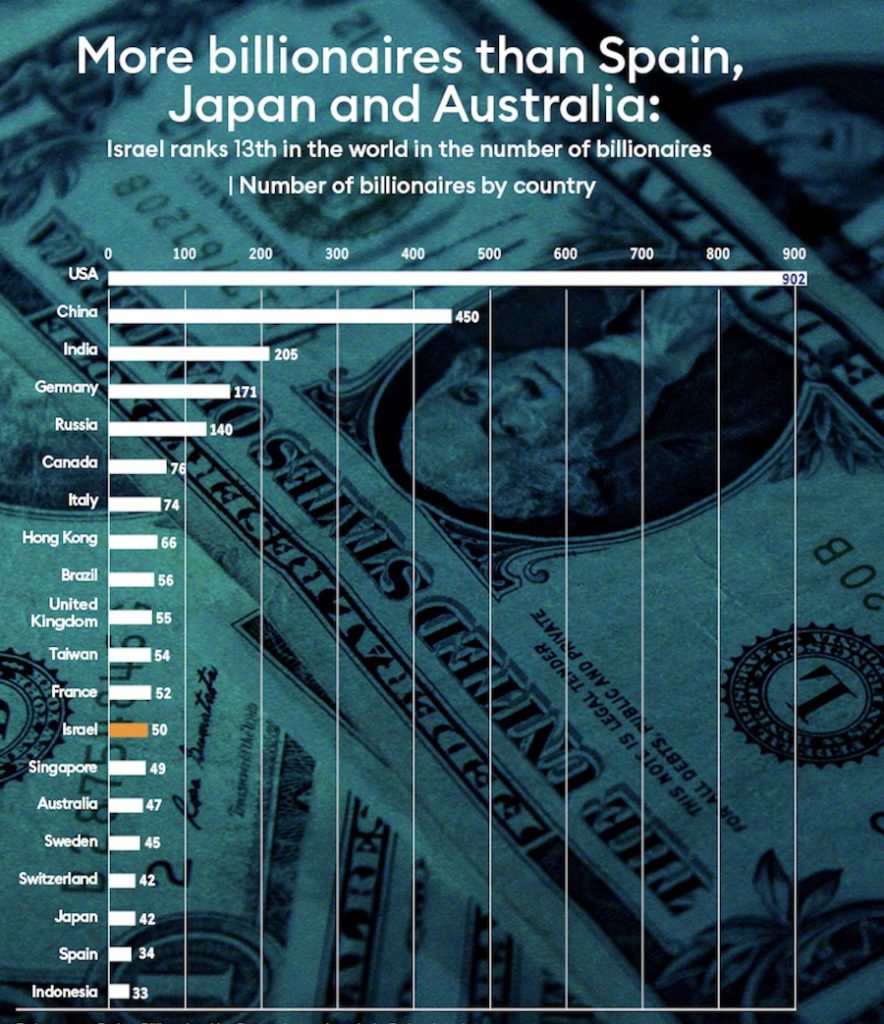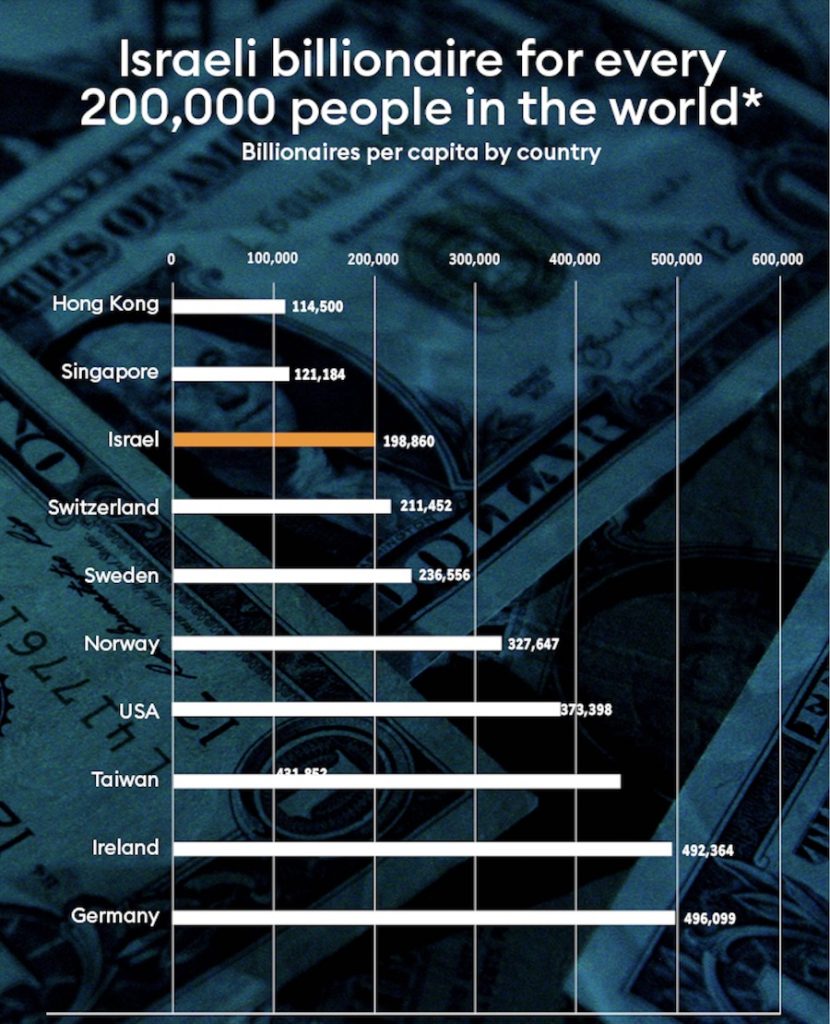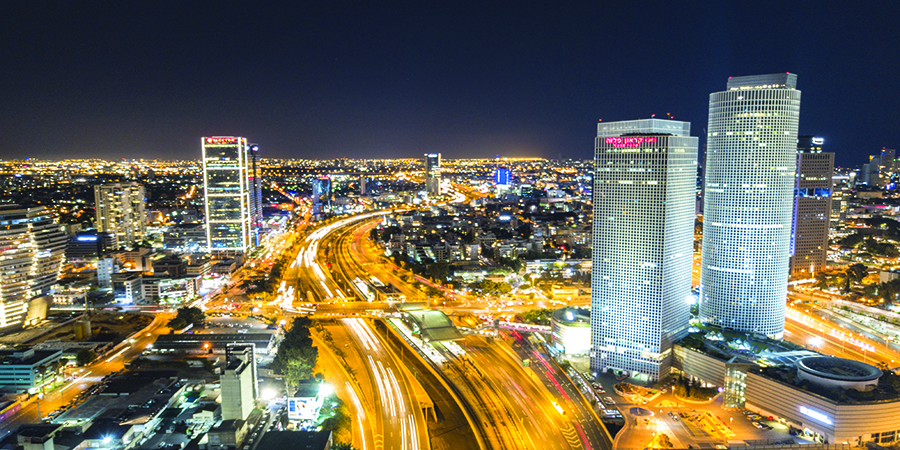Forbes’ 2025 global billionaires list includes a record number of billionaires — no less than 3,028 billionaires spread across 78 countries worldwide. Israel shows impressive, if not exceptional, representation, both in nominal comparison to other leading countries and economies, and especially when compared by population size.
Let’s start from the top. The United States, the largest economy, is naturally also the country with the greatest number of billionaires — 902. These represent approximately 30% of all billionaires worldwide, jointly holding a total wealth of $6.8 trillion – more than 40% of the total wealth of the world’s richest individuals.
Far behind, in second place, stands China, with half the number of billionaires — only 450. This is more than last year’s count (406) but still represents a significant decrease compared to the peak recorded about two years ago (495). The richest person in China today is Zhang Yiming, who founded ByteDance, the parent company of the social media application TikTok. His wealth is currently estimated at approximately $65.5 billion.
India, the world’s most populous country with more than 1.4 billion people, counts 205 billionaires this year (compared to 200 last year), collectively worth about $941 billion. Mukesh Ambani ($92.5 billion) remains India’s richest person, followed by Gautam Adani ($56.3 billion). Both Indian multi-billionaires experienced a sharp decline in their wealth this year, more than $20 billion, due to steep drops in their conglomerates’ share prices.
Completing the list of the five countries with the most billionaires are Germany (171 billionaires with a total value of $793 billion) and Russia, which despite the war and severe sanctions imposed by Western entities on many oligarchs in the country, manages to produce 20 more billionaires than last year (a total of 140 billionaires holding a combined wealth of $580 billion).
Israeli Record
Forbes’ global billionaires list, compiled annually in collaboration with Forbes Israel, includes an unprecedented number of blue and white billionaires: 50 billionaires with Israeli citizenship. Their combined value this year climbed to about $250 billion (compared to $206 billion last year), with three Israeli citizens – Miriam Adelson ($32.1 billion), Eyal Ofer ($28.2 billion), and Idan Ofer ($22.5 billion) – currently ranked among the world’s 100 richest people for the first time.
This is not the only record broken in terms of “Israeli capital.” Israel ranks 13th globally in terms of nominal number of billionaires, surpassing many much larger economies and nations.

In Indonesia, for example, with its 282 million residents (almost 30 times Israel’s population) and an economy producing $1.4 trillion in annual output (2.5 times Israel’s), there are only 33 billionaires. But this is also true for Western countries much larger than Israel, such as Spain (34 billionaires) or South Korea (30 billionaires). Even Japan – the world’s fourth-largest economy, with a GDP of $4 trillion (four times Israel’s), counts “only” 42 billionaires.
In the Netherlands, a country with almost twice the population and double the output of Israel, there are currently 13 billionaires, as well as in Ireland and Belgium (11 billionaires each), Denmark or Austria (only 9 billionaires).
Exceptional Wealth Concentration
The figures are even more impressive when normalizing the nominal number to population size – Israel’s ‘billionaires per capita rate’ is distinctly exceptional compared to other countries worldwide.
According to International Monetary Fund data, Israel ranks 28th globally in terms of economic size (GDP), compared to 95th in terms of population size. This fact alone demonstrates the concentration of wealth in Israel, but when examining the number of billionaires in the country, one sees how exceptional this concentration is — adjusting for population size, Israel ranks third in the number of billionaires, preceded only by Hong Kong and Singapore.
For comparison, in India, the billionaire-to-population ratio is very low — just one billionaire per 7 million people. Similarly, in Mexico (ratio of one billionaire per 6 million people), Brazil (one per 3.8 million people), or China — where the ratio between billionaires and residents stands at one per 3 million people.
In developed and wealthy countries, which rank at the global forefront in terms of GDP per capita, the ratio naturally increases. In Spain and the Netherlands, the ratio stands at one per 1.4 million people, and in Britain and France, the ratio is one billionaire per 1.2 million people.
In Israel, by contrast, there is one billionaire for every 200,000 people. Even in the United States, the nation of wealth, the billionaire-to-population ratio is lower, standing at one billionaire per 375,000 people.

(*)Among countries with a population of over one million people
Other wealthy nations ranking at the global forefront are Switzerland, ranked immediately after us with about 211,000 residents per billionaire – and Singapore, ranked second globally with a ratio of one billionaire per 121,000 people. At the top of the wealth concentration ranking, the country with the highest concentration of billionaires per capita in the world is Hong Kong — with one billionaire per 115,000 people.





